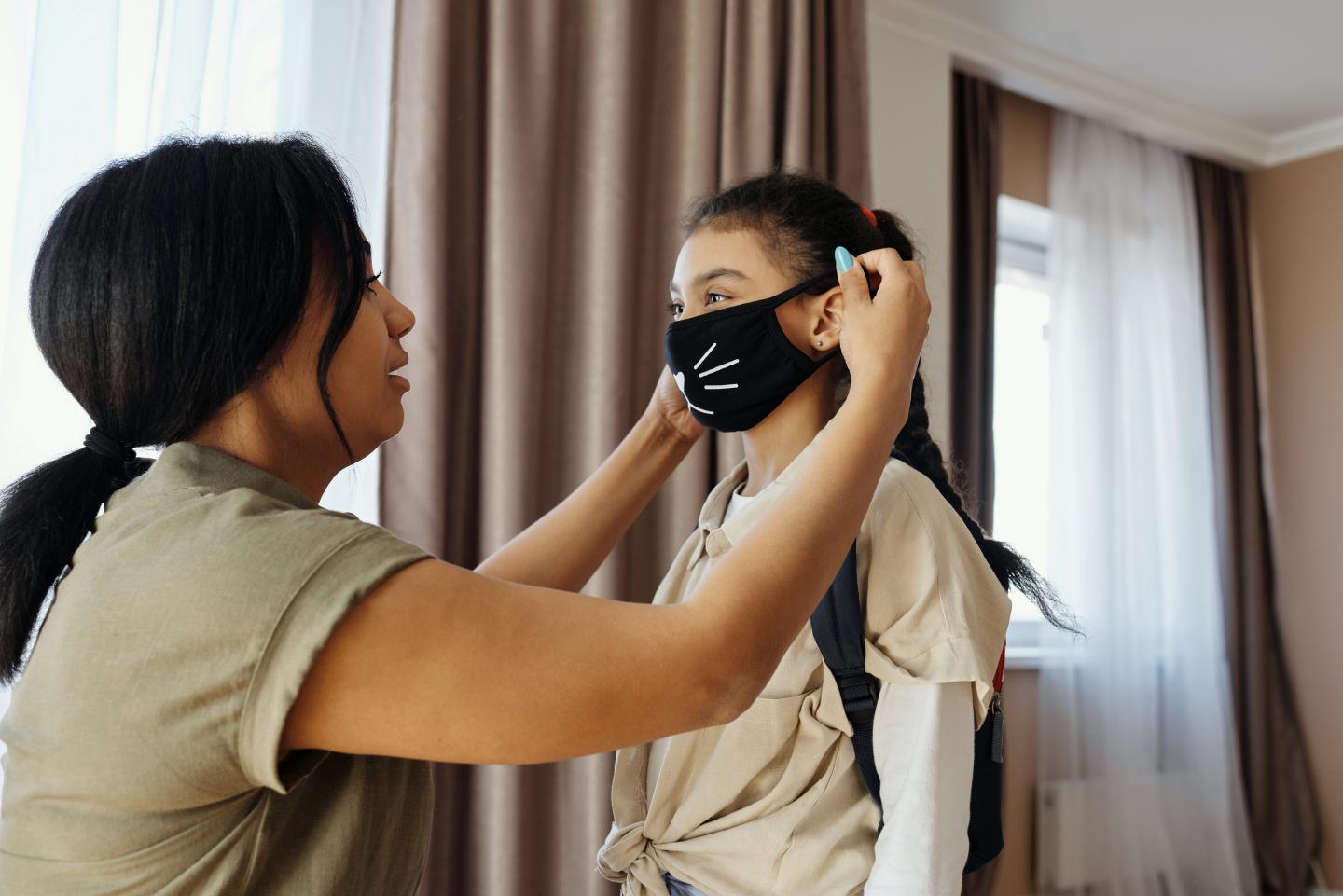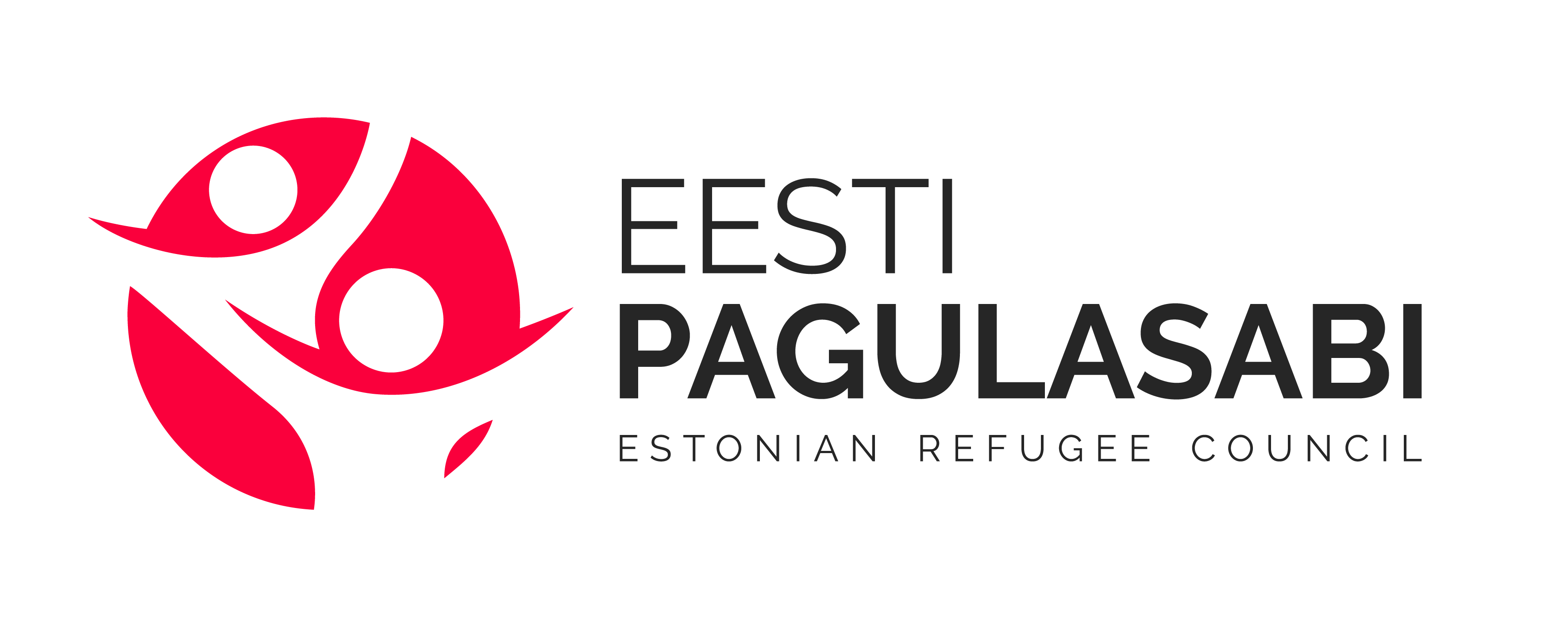
A Step Beyond the Coronavirus: How We Supported Refugees Affected by the Pandemic
From last year’s autumn to this summer, with the help of the European Union Solidarity Fund managed by the King Baudouin Foundation, the Estonian Refugee Council was able to support refugees affected by the coronavirus pandemic.
Why is this significant?
Many people who have received international protection work in the areas most affected by the coronavirus, mainly hospitality and tourism. As a result, the workload and wages of many refugees decreased and many of them lost their jobs altogether. However, finding a new job with scarce language skills is quite difficult.
Many people must have felt during the peak coronavirus period, that the state of emergency, self-isolation, an urgent recommendation to reduce people-to-people contacts, distance learning, caused confusion and anxiety. The circle of contacts for families with refugee backgrounds in Estonia is often quite limited, and the coronavirus tended to plunder even that. Several people with refugee backgrounds complained that the scarce opportunities for practicing the Estonian language in the shop or on the city street diminished; nor did the language learning that moved to online channels fit everyone – it didn’t seem as effective and inclusive as it did until then. There was also a decrease in communication between members of the community, who kept more to themselves in fear of the coronavirus. Many families were also concerned that a large family had to fit in day after day and manage in a small apartment, which created tensions between family members.
What did we do?
With the support of the fund, we were able to provide EUR 6,000 in material support and EUR 4,000 in support of mental health. To share the very limited assets thoughtfully, we developed an evaluation questionnaire to identify the challenges and needs of families. In addition to questions about residence, work, salary level, etc., questions related to mental health were also included in the questionnaire. 46 people replied to the questionnaire and as the questionnaire also concerned their household, an estimated total of approximately 160 people were covered.
Working through the answers, a ranking of people in need of support was formed. In total, we provided material support to 33 households. Maximum aid amount was EUR 300
Material support was needed by the respondents in a wide variety of very different ways. For example, winter clothes, winter boots, kitchen accessories and a carpet were mentioned to make the cold floor of the rental apartment slightly warmer. Several households also needed help to pay dental bills or utilities debts due to lost jobs.
For families who needed physical items, we decided to give supermarket gift cards to avoid affecting the aid received from the local government and to offer people the opportunity to choose the items they need and like in the store.
Although at the beginning of the emergency situation in 2020, we helped many families to look for computers for distance learning, it turned out that many families do not have enough of them i.e., to allow an adult to attend a language lesson and children to participate in distance learning. To find computers, we invited people to donate them, so as not to spend scarce resources only on computers. With the support of several private individuals and the Brazilian Embassy, we collected a total of 28 computers, which have now been distributed to families.
Mental wellbeing
As expected, but sadly, almost all respondents had at least 1-2 concerns about mental health. The most mentioned were loneliness, anxiety, tiredness and exhaustion, problems with sleep and relaxation.
Since mental health issues are mostly very hidden in the refugee community and readiness to deal with such issues is often limited, we offered various group activities, such as sound therapy and animal therapy. Animal therapy was exciting because it was the first opportunity for many people to pet animals and bond with them.
In a couple of cases, we also provided refugees with peer counselling to solve a specific mental health issue, and in two cases, also a monthly gym pass, so that people could get out of their homes and through physical activities also become refreshed mentally.
Summary
Providing material assistance is not the usual way of helping for the Estonian Refugee Council, as it can cause tensions in the community, for example, if one family receives a grant and the other one does not, or if the amount of the grant is different. The questionnaire developed and the ranking generated from it helped us make evidence-based decisions and, if necessary, explain these decisions to dissatisfied community members.
The group activities supporting mental health proved themselves well and we would like to continue these in the future with the support of donations made to the Estonian Refugee Council’s mental health fund.
